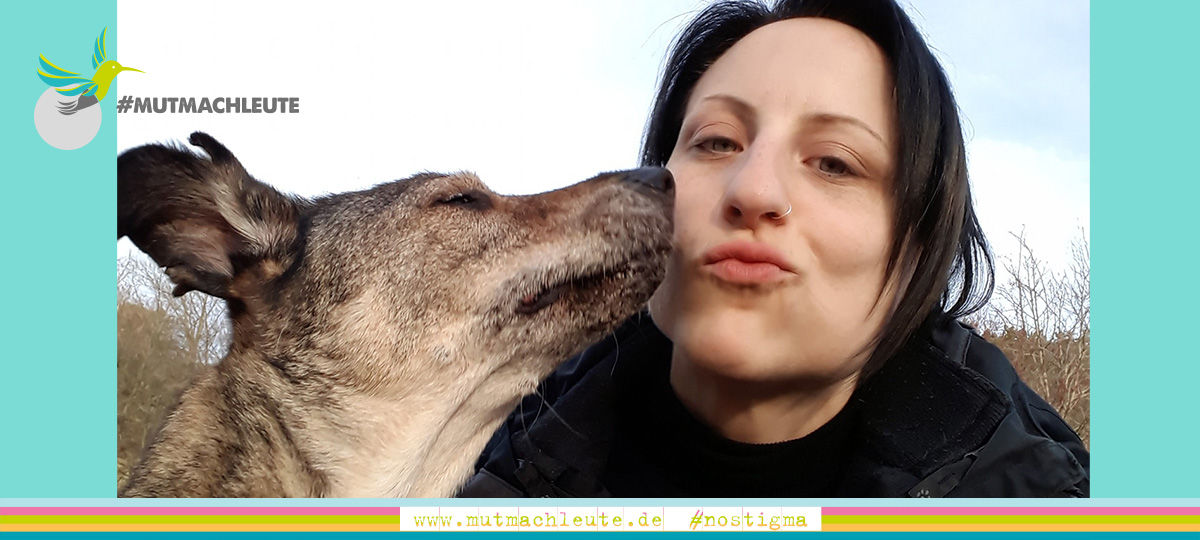Borderline, adjustment and eating disorder: giving up is not an option!
Affected: Natascha
Vintage: 1986
Diagnosis: Borderline, Adjustment Disorder, Eating Disorder
Therapies: Two years of psychoanalytic talk therapy, currently looking for a new therapy, preferably DBT or a similar
Resources: my dogs, sometimes just watch series, recently a private garden
How and when did you learn of your disorder?
The first two reports with about 19 and again in the mid-20s revealed “only” moderate depression. It wasn’t until 2017 that I was diagnosed with borderline and adjustment disorder. At the end of 2019, i was added to a binge eating disorder, which I have been suffering from for about twenty years without ever being aware of it.
Why did you decide to show your face now?
I started doing it at the end of 2017, via Facebook, Instagram and with my own homepage, because I think it’s not something to hide or should be. On the contrary:
I think it is important to talk openly about this, to reduce stigma and fear of contact, and I hope that it will perhaps help one or the other person affected.
How did your environment react when it learned of your illness, and how would you want your environment to deal with your disorder?
My immediate environment tries to help, but for most it is simply intangible, incomprehensible, where I work so “normally” …
I would like people to be more concerned, to inform themselves more and, as a result, perhaps to respond more sympathetically and with fewer fears of contact with those affected.
What things helped you most to accept the disease?
I never really lacked acceptance. It sounds strange at first, but I was happy about my (current) diagnoses. Not about the illness itself, but about finally understanding me and my previous life better and understanding many things.
What resources do you use in crisis situations?
This point is still very patchy for me. I don’t have the right skills that I could get in particularly stressful or “difficult” situations. Basically, however, my dogs are my main anchor.
What do you want to give to other people affected?
Everyone has their own (inner) demons, which they fight against every day. Whatever happens, don’t give up! Even if it often doesn’t work like that, it’s worth fighting!
What do you want to give other relatives along the way? How can they best help you (on the one hand) and yourself (on the other hand)?
Deal more with the topic, inform yourself professionally/objectively and try to understand those affected as far as possible, because understanding is the most important basis for breaking down prejudices and really being able to help.
What makes your character and what trait do you value most about yourself?
For me, it is my fighting spirit to be able to assert myself if I put something in my head, to stick to my own values and principles and not to let anything be dictated to me. So what many others probably call stubbornness or thick-headedness, I find quite positive. I think that’s what has helped me all these years not to give up, no matter how bad it all seemed to me.
Natascha blogs on her homepage for those affected and interested. She is also on Facebook and Instagram.



